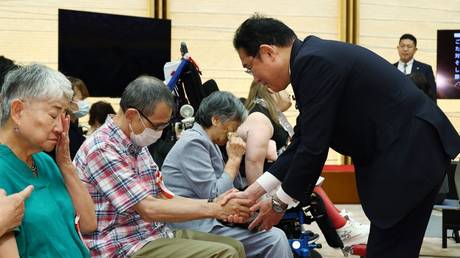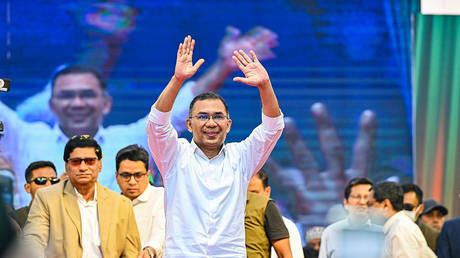
Tokyo was recently ordered to pay compensation to potentially thousands of people who underwent the procedures
Japanese Prime Minister Fumio Kishida has issued an apology to more than 100 people who were sterilized under the country’s decades-long eugenics program. Kishida promised that he would pay compensation to all surviving victims of the policy.
Kishida met with around 130 people, including 19 plaintiffs involved in lawsuits against the government, at his office in Tokyo on Wednesday, according to Japanese media. The meeting took place two weeks after Japan’s Supreme Court ordered the state to compensate victims of the eugenics program, which it ruled unconstitutional.
“The government’s responsibility is extremely large,” Kishida said at the meeting. “I offer my apologies from the bottom of my heart. We will decide as soon as possible on a new framework for compensation.”
Japan passed the Eugenic Protection Law in 1948 as a means of taming the post-war baby boom and preventing “the birth of inferior offspring.” Until the law’s abolition in 1996, around 25,000 people with disabilities were sterilized, including more than 16,000 who were operated on without their consent, according to a parliamentary report.
Since 2019, the government has offered a ¥3.2 million ($20,280) lump sum to anyone who was sterilized under the program, provided they requested compensation within 20 years of the surgery. More than 800 women and 300 men have received these payouts, but critics – and the Supreme Court – say the amount is too little and the 20-year statute of limitations excludes most of the program’s victims.
Some 39 victims have filed lawsuits against the government, with 12 rulings delivered in favor of the plaintiffs and nine against them, according to the Japan Times. Six of the plaintiffs have died since filing their complaints.
The first ruling in favor of a plaintiff was handed down by a court in Osaka in 2022. However, the government maintained that the statute of limitations ruled out compensation for the victims involved in the case, who were sterilized in the 1960s and 1970s. The Supreme Court’s ruling earlier this month covered the Osaka case, and four other cases heard in local courts.
During Wednesday’s meeting, Kishida said that he would consider compensating victims who have not filed lawsuits, as well as the spouses of those who were sterilized.




